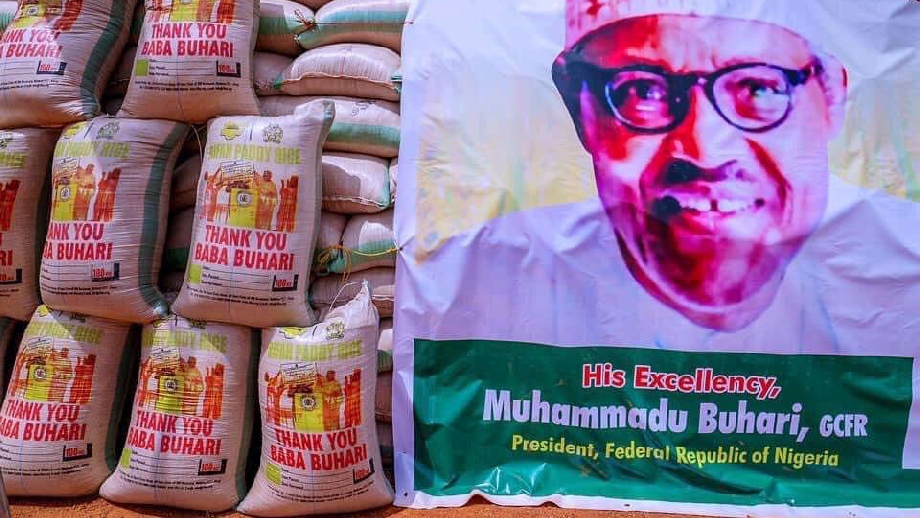
It was christened Anchor Borrowers’ Programme (ABP), but many Kano farmers prefer to call the Central Bank of Nigeria’s (CBN) low-interest credit scheme to farmers ‘Buhari Bonanza’.
Their impression is that the ABP – though its objectives were clearly highlighted from inception – is one of the so-called free ‘national cakes’ from President Muhammadu Buhari’s administration.
“Ask any farmer about ‘Buhari Bonanza’ in Kano, they will tell you that it is the nickname of the CBN’s Anchor Borrowers’ Programme.
“Many of them (the beneficiaries) are not willing to refund the loans despite our relentless efforts on recovery,” Lawan Bello, the vice chairman of the Cotton Farmers’ Association in Kano State lamented.
Inaugurated in 2015, the CBN established the ABP to create economic linkages between smallholder farmers and reputable companies involved in the production and processing of key agricultural commodities.
The aim was to provide loans (in kind and cash) to the farmers to boost agricultural production, create jobs and reduce food import bills towards the conservation of the foreign reserve.
Anchor Borrowers’ Loans Gulp N800 bn in Seven Years
The Minister of Agriculture and Rural Development, Mohammed Abubakar was quoted in December 2022 at the Feed Nigeria Summit in Abuja as saying that four million farmers cultivating a variety of commodities on over five million hectares received N800 billion under the ABP in seven years.

Minister of Agriculture, Mohammed Abubakar
The program appears to be a turning point for farmers and the agricultural sector, but the loan recovery plan has been shambolic.
This may not be unconnected with the level of corruption, negligence, poor execution, recovery plan, and other extraneous factors hampering the scheme.
Corruption, Poor Implementation Mar ABP Recovery Plan
In Kano, for instance, Bello disclosed that many traders turned to farmers overnight to enable them to benefit from the ABP.
He also accused some leaders of farmers’ associations and people in power of favoritism.
“They added names of their friends and cronies to the list of the beneficiaries instead of the real farmers. Many of them sold the inputs immediately they got it,” he said.
“Even big people like chiefs, Divisional Police Officers, Districts Heads, Department of State Security, and some officials from the state ministry of agriculture brought their people and we gave them.
“They collected inputs for like five hectares, and ten hectares and nobody asked them for a refund.
“One man from Tarauni Local Government Area (LGA) popularly known as ‘Saraki’ used fake documents to receive plenty of items worth millions of naira.
“He produced fake RIFAN slip distribution forms and succeeded in accumulating wealth through the program. He was arrested and taken to court recently, but nothing came out of it,” he explained.
Official Re-loots Recovered Cash, Farm Produce
Bello, who doubles as the chairman of the Kano South Recovery Committee noted that the committee was set up in the Kura cluster comprising Kura, Kiru, Bebeji, and Kano Municipal.
He said, unfortunately, one of the recovery officials, Saminu Kura re-looted some monies and farm produce that he recovered in the zone.
“He (Saminu Kura) did not remit to the headquarters; I have the evidence of the paper he signed.
“He collected over three hundred thousand and refused to remit. He also collected many items from cotton farmers and sold it all,” Bello disclosed.
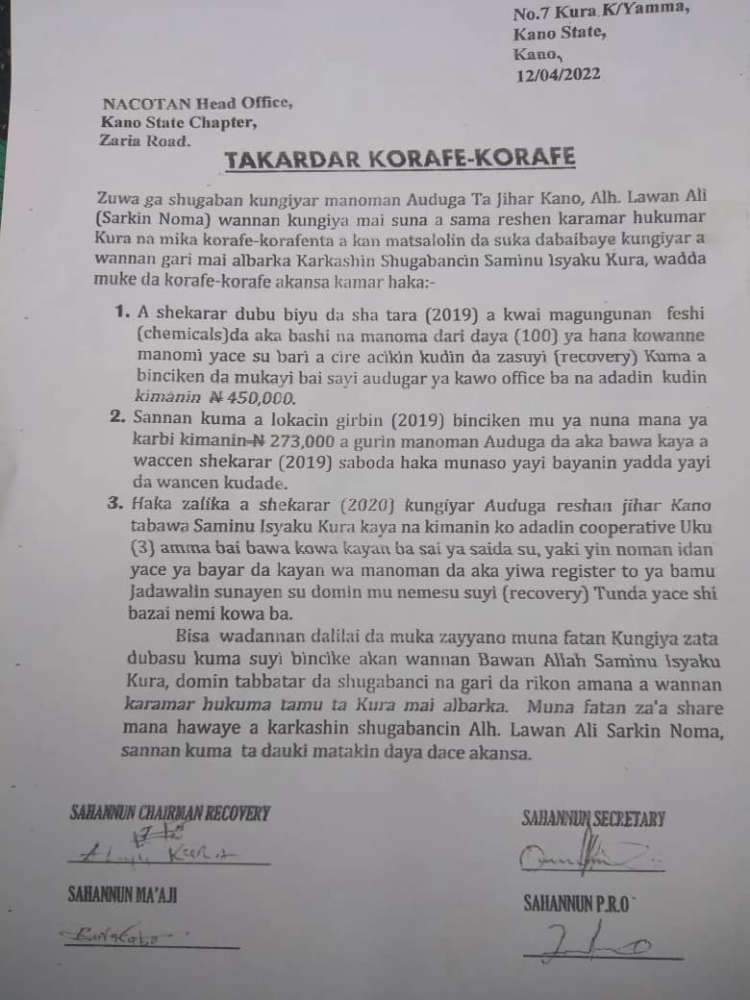
Saminu’s Documented Recovered Cash/Inputs Written in the Hausa Language
Kura is currently at large and efforts to reach him have been unsuccessful.
RIFAN Allegedly Sets Warehouse Ablaze to Cover-Up N230m Fraud
The operational guidelines of the ABP stipulate that the associations of each commodity keep the inputs they receive from the CBN’s service providers in their respective warehouses at the state level for onward distribution to the local governments.
But the chairman of the Kano South zone of the All Farmers Association of Nigeria (AFAN), Lawan Umar, said the executive members of the state’s Rice Farmers Association (RIFAN) received inputs worth millions of naira and set the warehouse ablaze to cover their fraudulent acts.
“State Headquarters of RIFAN, about three years ago when they received some inputs under the ABP; they stored them inside a warehouse and put fire (set the warehouse ablaze). They later reported that fire has gutted everything,” he alleged.
RIFAN Chairman Denies Allegation
In reaction, the RIFAN chairman in Kano State, Abubakar Haruna Aliyu, confirmed there was a fire at the RIFAN warehouse in the Konar Maggi area in May 2020, but denied the allegation of arson.
“Truly there was a fire outbreak at our warehouse in Konar Maggi around May 2020 due to hot weather conditions. Many farm inputs and chemicals worth N230 m were completely destroyed,” he said.
“We have nothing to hide because we have records of all farmers who benefitted from the program,” he explained.
The chairman, who noted that the state fire service and other relevant agencies knew about the incident, however, challenged the security agencies to investigate the matter.
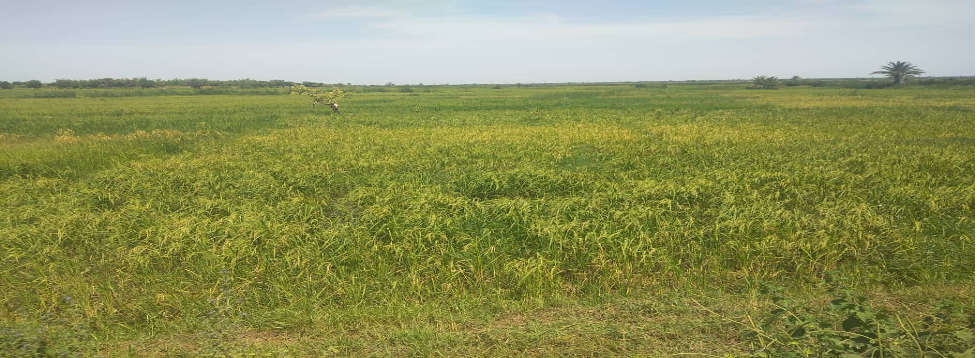
Rice Farm in Kura LGA
He added that about 200,000 rice farmers benefitted from the ABP in the state before the intervention was halted in 2022 due to poor recovery of the loans given to the farmers.
The RIFAN chairman attributed the low recovery to the late distribution of inputs by the CBN and natural disasters like drought and floods.
According to him, the suspension of the program might undermine the recent gains in agricultural production across Nigeria.
‘Political Contractors’ Hijack ABP in Kano
Furthermore, the AFAN Chairman in Kano South Zone accused the apex bank of engaging ‘political contractors’ for input procurements and distribution.
“They got somebody from Abuja supplying Kano seeds. Also, Golden Penny, Dangote, and Metrix are the best fertilizer-producing companies we have in Nigeria, they did not engage most of them, and what we got from other companies was below standard.”
“Poverty is forcing farmers to collect the inputs without minding the quality, so what kind of recovery are you expecting?” he asked rhetorically.
He explained that many dealers were buying some of the ABP inputs from farmers at the point of delivery, defeating the purpose of the program.
“I know one trader who came from Sabon Gari to Kura and bought many spraying machines from farmers.
“The machines that were given to farmers at N43,000 each as loans, the man bought them from the farmers at N20,000. Now tell me how those farmers would get money to refund the loans,” he added.
CBN’s Global Standing Instruction for ABP Loan Recovery Ineffective –RIFAN
Disturbed by the low level of the recovery of the ABP loans, the CBN in September 2022 deployed the Global Standing Instruction (GSI) against loan defaulters under the ABP.
The GSI is a policy that allows banks to debit the accounts of loan holders in their banks to settle defaults.
But the RIFAN Chairman in Kura LGA, Ado Sarkin Noma, clarified the reason such a policy might be ineffective despite having details of the farmers’ Bank Verification Numbers (BVN) during the registration process for the loans.
According to him, most of the smallholder farmers do not have a culture of saving in their banks.
He said they only opened their accounts and got a BVN for securing the ABP loan. Hence, no kobo was deposited in most of the accounts or in other accounts that are linked to their BVN.
Farmers Groan over Late Input Distribution, Poor Orientation
In Gezawa LGA, the secretary of the Maize Farmers Association, Tijjani Adamu, decried the untimely release of inputs and the little or no orientation given to farmers before the program kicked off.
“They (CBN) gave the farmers the inputs in 2017, 2018, and 2019, they gave us three consecutive times without asking for recovery, so it was the third time they were now asking for recovery, this is the reason many farmers saw it as a national cake,” he explained.
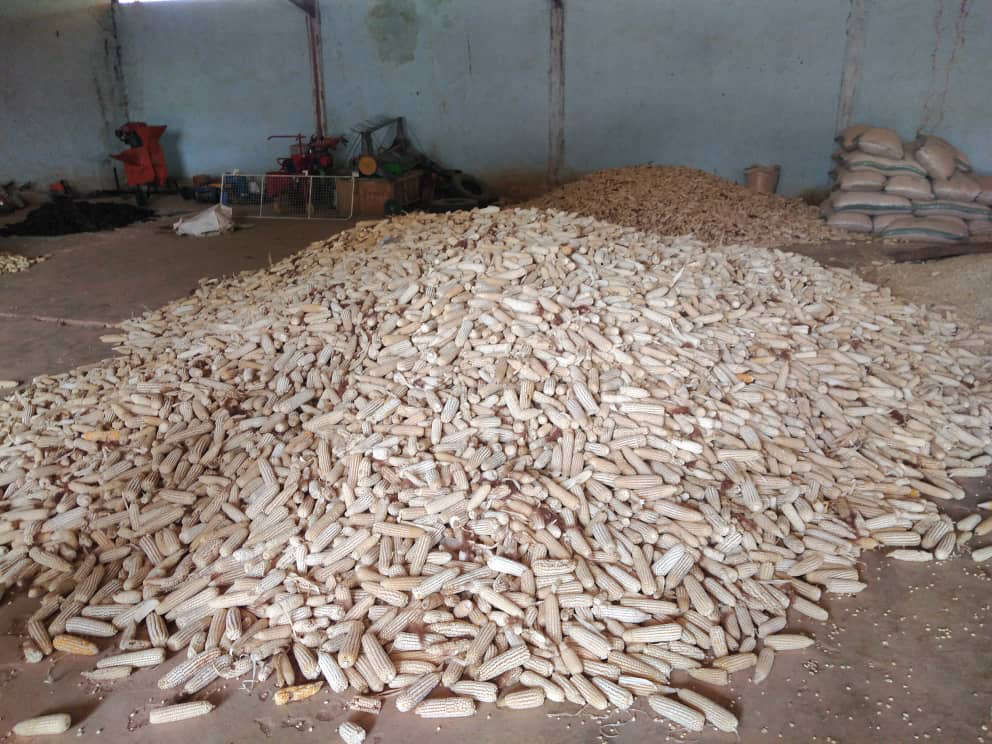
Recovered Maize Under ABP in Minjibir LGA
Corroborating Adamu’s position, the RIFAN secretary in Gezawa LGA, Ali Ibrahim, said most farmers in the local government were unaware of the terms and conditions of the ABP.
“They (CBN) only carried along the executive members of each commodity at the state level. Many farmers and LGAs excos have no full knowledge of the program,” he noted.
Farmers Cry Out as Price of CBN’s Inputs Double Market Price
He also lamented the high cost of the farm inputs being supplied by the CBN, describing it as outrageous.
“The materials were too costly when compared to what is obtainable in the market but farmers were rushing to collect it due to poverty and their impression that it is the usual nation cake.
“For instance, we used to buy a water pump at N18,000 in the market but the CBN supplied it at N39,000. They (CBN) gave us a sprayer at N7,000 instead of N3,500. Organic fertilizer in the market is N500 but they gave us at N1,800,” he narrated.
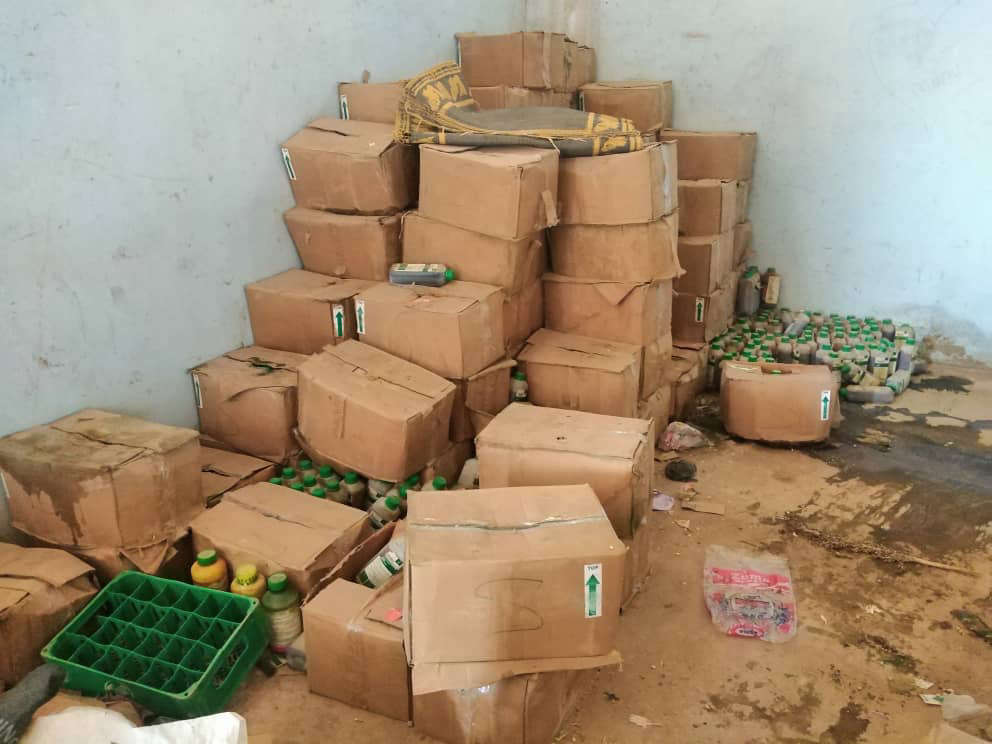
Remnant of Organic Fertilizers Supplied by CBN at Minjibir Warehouse
The AFAN chairman in Minjibir LGA, Jubril Muhammed Wase, also accused the CBN and other service providers of inflating the prices of the inputs. Wase claimed that the cost of production was higher than the outputs.
“The program appears to be putting genuine farmers into hardship because of the bureaucracy involved in accessing the inputs and their high cost. Sometimes we are directed by our leaders to give these inputs to people that are not farmers,” he explained.
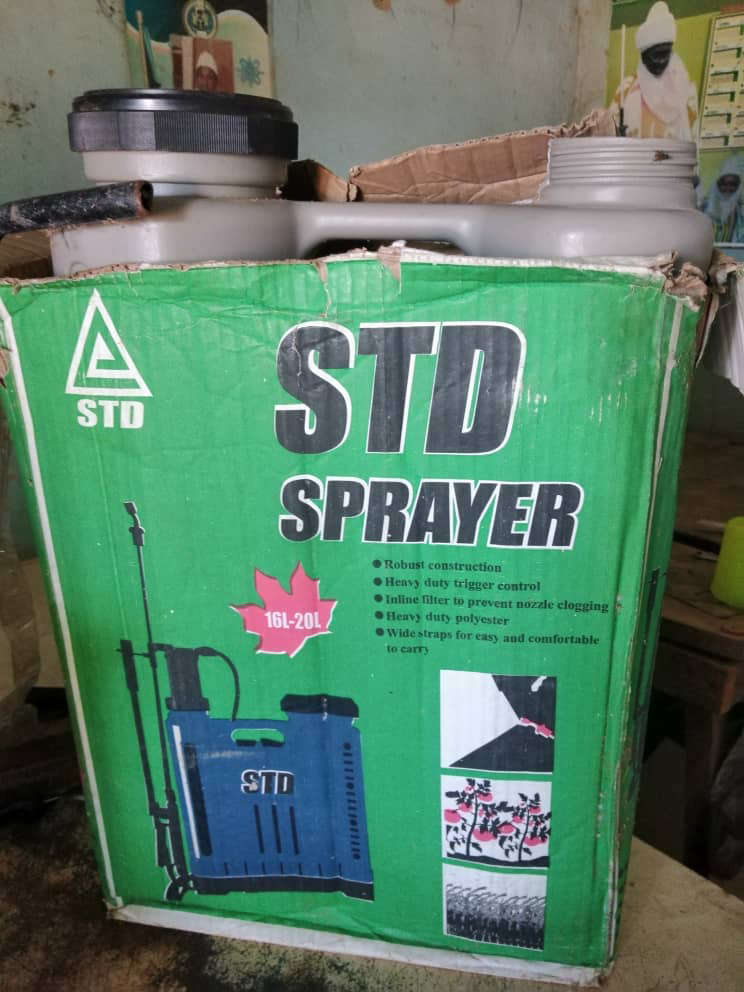
One of the Sprayers Sold for N7,000
Tomato Farmers Accuse Dangote Company of Failure to Remit N500m Recovered Loans
Tomato is among the commodities captured under the ABP loans, but tomato farmers in Kano State have been suspended from the scheme since 2021.
Their suspension was linked to the alleged poor loan recovery, lack of storage facilities, and sustainable mechanisms.
The chairman of the Tomato Farmers Association in Minjibir LGA, Nadabo Mati, said the tomato farmers in the state got about three billion naira worth of ABP loans before the suspension.
Mati attributed the low recovery to the perishable nature of the commodity and negligence. He also accused Dangote Tomato Processing Company of failing to remit about N500 million that the company recovered from the farmers.
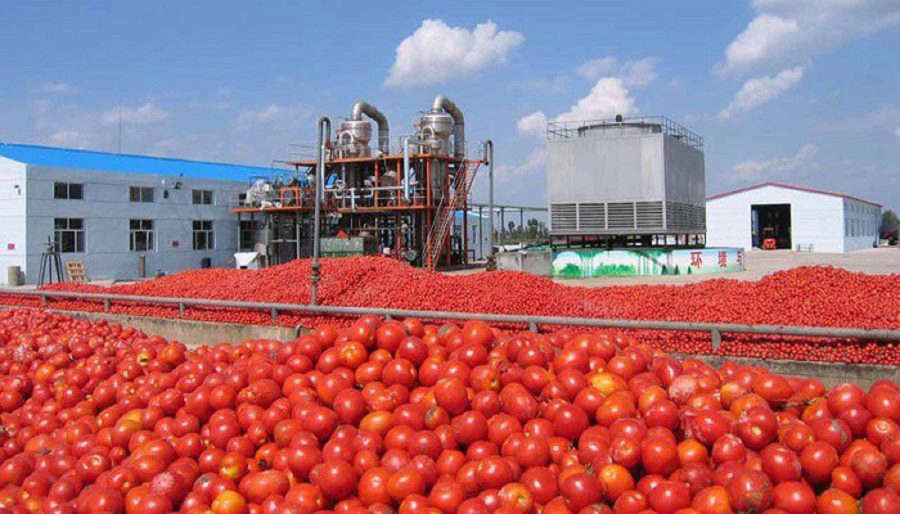
Dangote Tomato Processing Company
“From the beginning of the program, Dangote Company was contracted to be taking tomatoes from our members as part of the recovery plans,” he said.
“Despite the stress and cost implication of transporting the tomatoes to Dangote Company in Kura, we may be in the queue there for seven days waiting for the company to take the commodity from us, they always claimed that their equipment was faulty.
“You know our product is perishable. Such delay sometimes costs us 30 to 40 percent losses and the Company (Dangote) will not bear the loss.
“Apart from that, we later found out that even the N500 million worth of tomatoes that the Dangote Company recovered from us; the company did not remit it to the CBN’s designated account.”
AFAN Confirms Dangote Company’s Alleged Complicity in ABP Fraud
The AFAN secretary in Kano State, Musa Shehu Sheka, confirmed the allegation against Dangote Company.
He said the company was taken to court over the allegedly unremitted N500 million.
“It is another market manipulation and nobody can query them (Dangote Tomato Processing Company). What we can do is write a petition and take the company to court.”
“We (AFAN) took an action on the allegation by confirming the situation, we took the company to court, but we were told to go back and settle the matter amicably. Though, the case is still pending in court,” he disclosed.
Dangote Company Blames CBN for Refusal to Pay Shortfall
But a former Managing Director of Dangote Tomato Processing Company has denied the company’s complicity in the alleged fraud.
Abdulkadir Isah explained in a telephone interview that the company entertained the fear of getting buyers for the processed tomatoes from the onset of the program but that the CBN allayed the fear.
“We all agreed to collect the fresh tomato from farmers and process it into tomato paste. But we asked CBN what is the market for the proposed tomato paste because the previous year we processed it nobody bought it from us,” he said.
“Up till now the stock we processed last year is still in our factory, so we don’t want to get into another issue again,” he added.
Isah said his company notified the CBN that most of the companies packaging tomato paste in the country were importing them from China, but the apex bank promised to compel them to patronize the Dangote Tomato Paste.
“The CBN assured us that those companies will be forced to patronize us by stopping the importation, so we said ‘no problem.’
“As the farmers were supplying the tomatoes, we were computing it and paying them but it got to a point that nobody was buying from us so we went back to the CBN.
“Truly the CBN eventually introduced a company to us. But there was a shortfall in the negotiated price and the CBN decided to pay the shortfall.
“We also agreed that the shortfall was to be paid into the account of the Tomato Farmers’ Association. But up till now, the CBN has refused to pay the money”.
“We wrote to the CBN since the 2019 season. We wrote another reminder yet no payment. I even have a copy of the letter. So, that is the dilemma and the association is aware. So far, we are not holding the farmers’ money,” he disclosed.
Isah also denied the farmers’ allegation that the delayed collection of tomatoes at the Dangote factory was responsible for the postharvest losses recorded by farmers. He said only substandard tomatoes were rejected.
“There was never a day, even when we are not running production, that we did not accept any tomato brought to our factory.
“Some of these farmers will bring unripe tomatoes, those ones that can get rotten and we have quality parameters, so those are the ones we reject outrightly,” he said.
Poor Orientation about New Variety Mars Recovery from Wheat Farmers
Just like the tomato farmers, the chairman of the Wheat Farmers Association in Minjibir, Shuaibu Dauda, has complaints over the late distribution of inputs and the lack of proper orientation for wheat farmers in Kano State.
According to him, wheat farming is still new in the state, coupled with the nature of the new variety that was supplied by the CBN. He said the farmers were not conversant with the technicalities of the variety’s planting process.
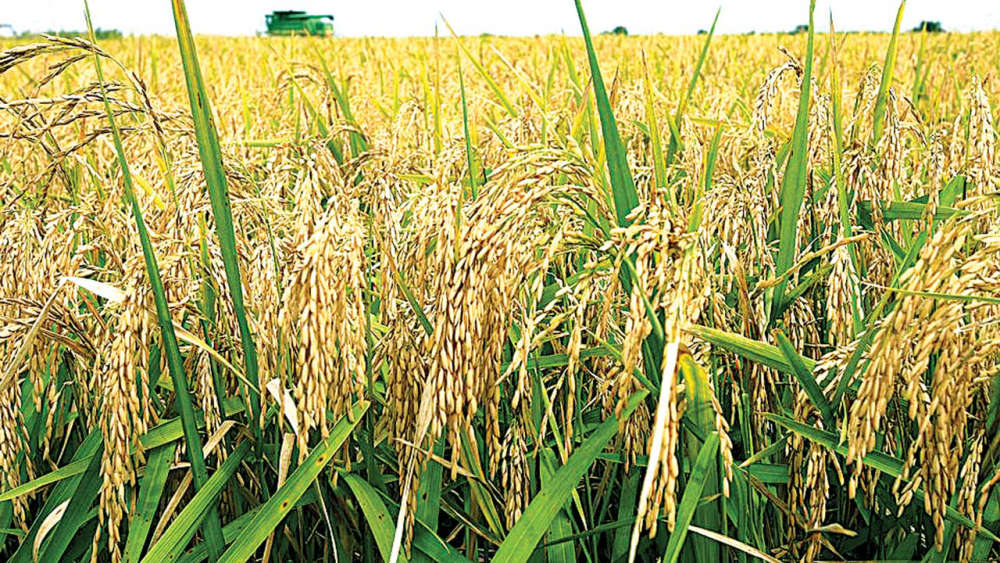
Wheat Farm
“The variety is new, many of our wheat farmers are also new in the business. No proper mapping and examination of land before the distribution of the variety to ascertain its efficiency as outlined in the ABP guidelines,” he complained.
“As a result, we were told that we would get at least 35 bags per hectare with the new variety during the harvest period but we eventually got about three bags per hectare.”
Dauda, who described the loss as colossal, added that the insurance companies who were engaged and mobilized to rescue such a situation were nowhere to be found.
“Some insurance companies were contracted and mobilized to manage this kind of loss, we called their numbers repeatedly to witness what we were passing through, they promised to come but they never showed face,” he lamented.
AFAN Accuses CBN of Underservice, Poor Implementation
When contacted, the AFAN chairman in Kano State, Abdullahi Ali Mai Buredi, also cited the untimely distribution of farm inputs as the major factor that led to the low recovery of the ABP loans.
“CBN caused the problem of low recovery. Inputs did not come until November/December instead of May of every year, so what we are getting we used for dry season farming.
“Some farmers will just collect the inputs and keep them till next year farming,” he explained.
Mai Buredi also disclosed that the ABP guidelines stipulate the responsibility of the apex bank to provide mechanization and aggregation funds to farmers to facilitate the smooth running of the program.
But according to him, the CBN breached the agreement following its refusal to make provisions for the aforementioned funds.
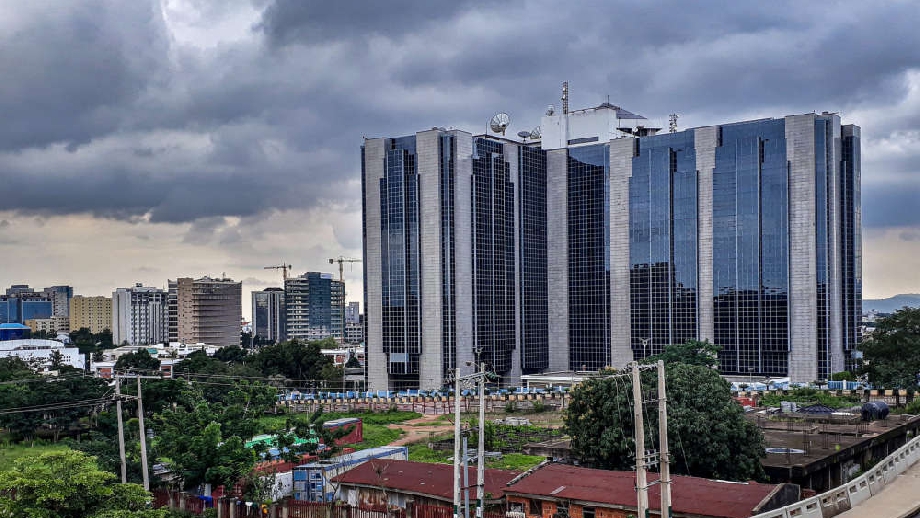
Central Bank of Nigeria
“Mechanization fee is meant for farmers to prepare their farmlands and take care of some pre-farming activities like the hiring of tractors, the guidelines say the CBN has to pay but they refused to release it,” he said.
“Also, because the farms are clustered, the money to transport the recovered commodities from one farm to another before assembling it at the warehouse for onward transportation to the headquarters is called aggregation fee.
“Farmers were asked to take the inputs to the warehouse while CBN pays for their transport as captured in the economic cost of production. The aggregation fee per hectare is N10, 000 and they are not giving us, so how can we recover loans” He alleged.
Clarifying further on the challenge of the aggregation fee, the AFAN Secretary in Kano, Musa Shehu Sheka, said CBN’s refusal to disburse the fund was one issue; and yet another is the N10,000 aggregation fee per hectare for loan recoverers, which he considers small.
“The cluster


